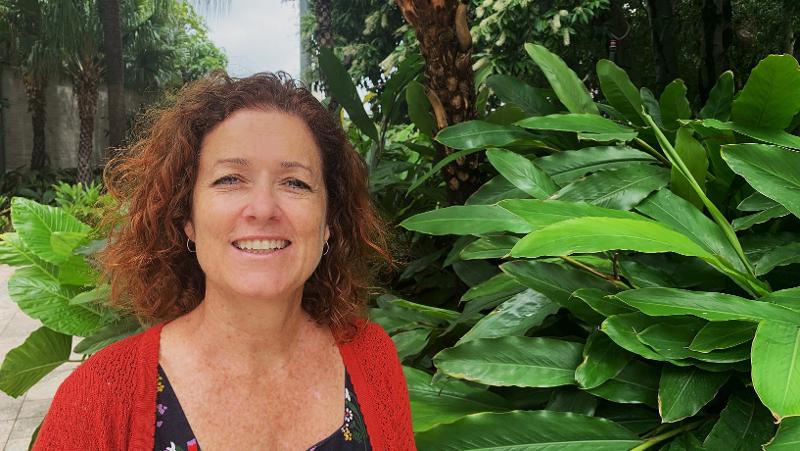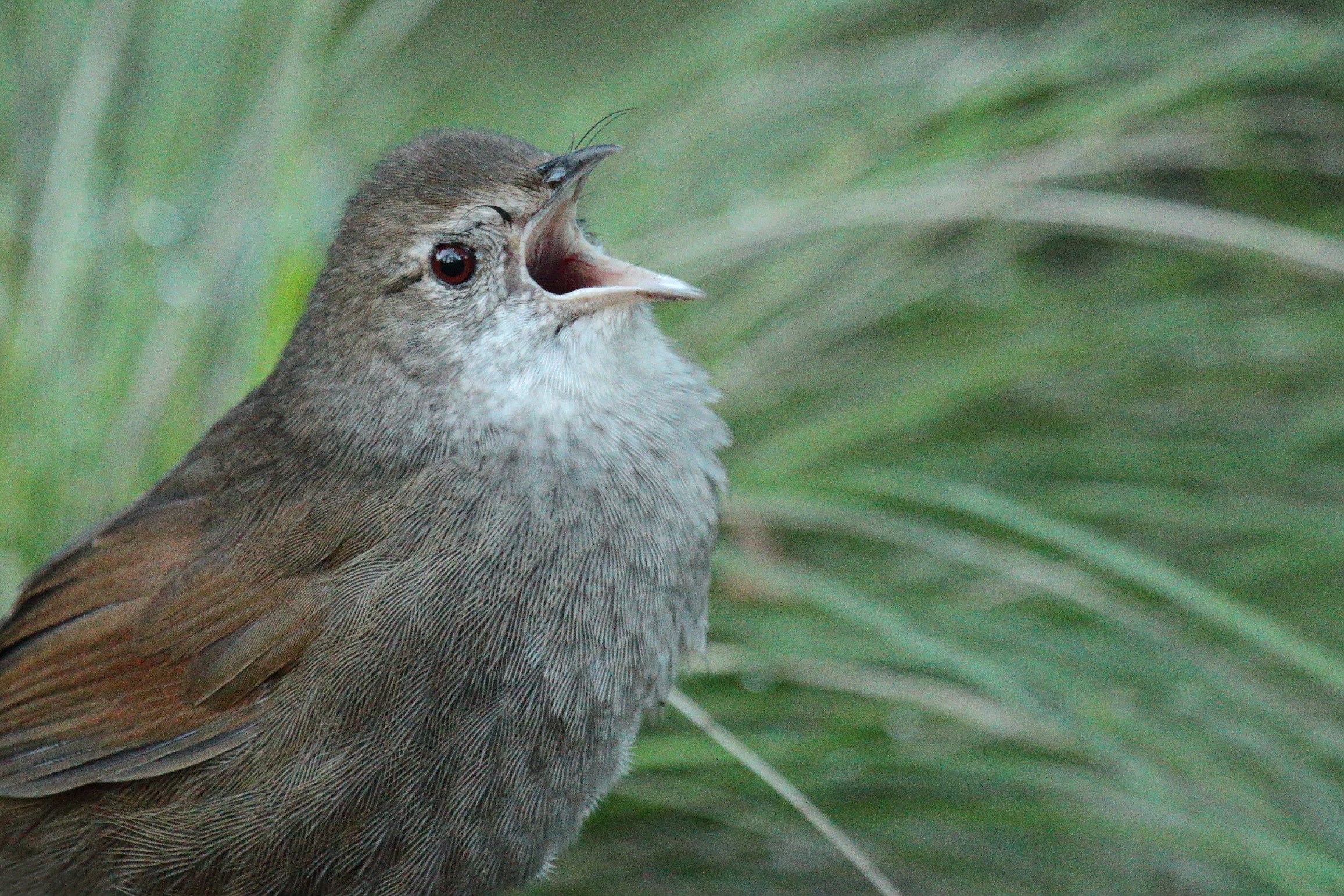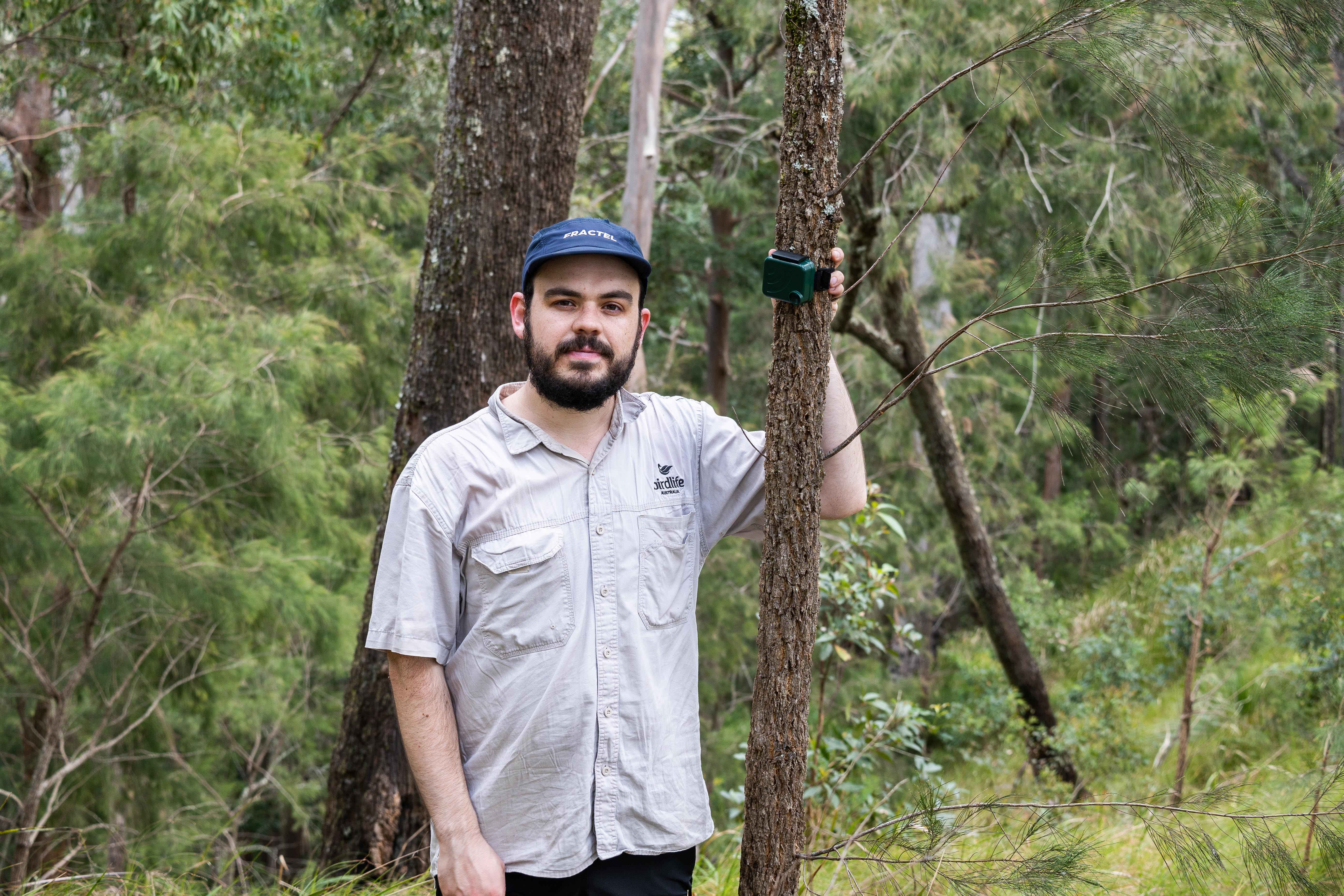
The song of the endangered Eastern Bristlebird, a species not seen or heard in South East Queensland for three years, has been captured by acoustic monitors and identified with the aid of artificial intelligence developed by QUT researchers.
Birdlife Australia, working with environmental organisation Healthy Land and Water and supported through funding from the Australian Government, have been deploying acoustic recorders searching for the species in South-East Queensland. Sound collected is analysed for the presence of Eastern Bristlebird calls in a partnership between QUT and the Queensland Department of Environment and Science.
Associate Professor Susan Fuller from QUT’s Centre for the Environment said the recordings were screened with an AI model developed by Dr Lance De Vine from QUT’s School of Computer Science. 350 Eastern Bristlebird calls were detected in July and August of this year, on five separate recorders. This is the first time the species has been found in Queensland since the Black Summer bushfires three years ago.

“Passive acoustic monitoring is revolutionising how we survey soniferous biodiversity (animals that produce sound). It is non-invasive, verifiable, and provides a permanent record of the environment,” said Professor Fuller.
“We can record continuously which means we have more chance of detecting cryptic and low density or threatened species like the Eastern Bristlebird. Now we have developed software tools to rapidly scan the big data generated from continuous passive recordings and hone in on a particular species.”
Callan Alexander, a research assistant at QUT, said that passive acoustic recorders allowed researchers to monitor a single location for months at a time. However, they collected so many hours of recordings that listening to them all is almost impossible.
“We need solutions to go through the data quickly, searching for the species that we are interested in. This is where artificial intelligence comes in,” Callan said.

“Basically, we transform the audio into an image, and then train a deep learning model to only search for images that we are interested in. In this case, we train our model to detect Eastern Bristlebird calls.
“The tricky part of this, is that Eastern Bristlebirds are notorious for having complex and highly variable vocal repertoires. So, we had to go through a lot of acoustic data manually to capture enough training data.”
Callan said the main contributors to the endangerment of the Eastern Bristlebird were inappropriate fire regimes and invasive weeds. Through his role at Birdlife Australia, he has 20 acoustic monitors out in the field over the summer and the data will be further analysed with QUT software.
“With more acoustic data to be analysed and further surveys to take place, we are very hopeful that the number of birds, extent of territories and evidence of breeding will be able to be determined,” he said.
The development of the software tool was funded by a Community Sustainability Action Grant which has also funded the development of models for four other threatened species: Albert’s Lyrebird, Cascade Treefrog, Fleay’s Barred Frog, and Koala.
“The technology is improving rapidly and will certainly be used for more species in the future,” said Professor Fuller.
QUT Pro Vice-Chancellor (Sustainability and Research Integrity) Professor Kerrie Wilson said the breakthrough had positive global implications.
“With governments around the world committed to the landmark Kunming-Montreal Global Biodiversity Framework, technologies such as ours will be critical to understanding progress towards reversing the decline the threatened species and restoring biodiversity,” Professor Wilson said.
Media contact:
Amanda Weaver, QUT Media, 07 3138 3151, amanda.weaver@qut.edu.au
After hours: 0407 585 901, media@qut.edu.au


